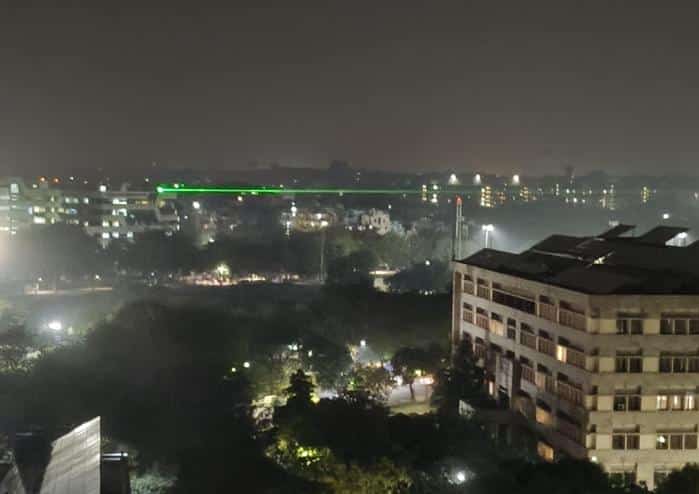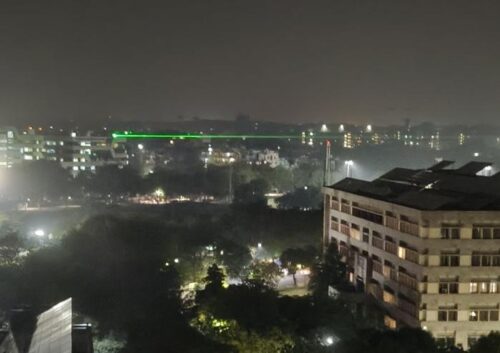
India just sent quantum messages through the air without cables. What does this mean for the future of secure communication? Read on!

India has successfully demonstrated free-space quantum secure communication using quantum entanglement, marking a major step in its quantum technology journey. The experiment was conducted at IIT Delhi under the DRDO-Industry-Academia Centre of Excellence (DIA-CoE). A secure optical link was established over a distance of more than one kilometre within the IIT Delhi campus. The system achieved a secure key rate of about 240 bits per second with a quantum bit error rate of less than 7%. This demonstration was carried out under the DRDO-funded project titled Design and Development of Photonic Technologies for Free Space QKD, led by Prof Bhaskar Kanseri’s research group. Senior officials from DRDO and IIT Delhi attended the demonstration.
This system uses quantum entanglement to distribute encryption keys securely. Unlike traditional “prepare-and-measure” methods, entanglement-based QKD ensures higher security even when the communication devices are imperfect or partially compromised. Any attempt to intercept the communication disturbs the quantum state of the entangled particles, which can be detected by users. This makes the system highly resistant to eavesdropping and external attacks.
A major advantage of free-space QKD is that it does not require physical optical fibers. This reduces the cost and complexity of installation, especially in areas with difficult terrain or dense infrastructure. It allows secure communication to be set up quickly and flexibly, without disrupting existing environments. The method supports real-time applications and is scalable for broader use in national communication networks.
The demonstration builds on previous work by the same team, including India’s first intercity quantum communication link between Vindhyachal and Prayagraj in 2022 using underground dark fiber, and a 100 km quantum key distribution over telecom-grade fiber completed in 2024. These developments reflect consistent progress in both fiber-based and free-space quantum communication systems.
Quantum communication is expected to be a dual-use technology with wide applications across defence, finance, telecommunications, and national security. It provides fundamentally unbreakable encryption, helping protect sensitive data and secure digital infrastructure. As India advances its quantum research and infrastructure, these technologies will be key to building a future quantum internet and secure national networks.










